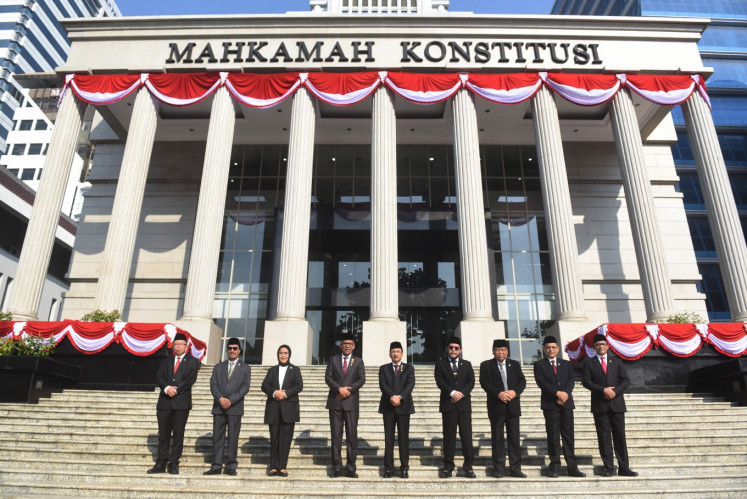Popular Reads
Top Results
Can't find what you're looking for?
View all search resultsPopular Reads
Top Results
Can't find what you're looking for?
View all search resultsBali targets $5.5b in tourism revenues
Bali was targeting revenue of US$5
Change text size
Gift Premium Articles
to Anyone

B
ali was targeting revenue of US$5.5 billion in foreign exchange this year from tourism, the island's leading sector, said head of the provincial tourism agency, Ida Bagus Kade Subhiksu, on Tuesday.
Bali is aiming to attract 3.5 million foreign tourists this year, a 10 percent increase on last year's target of 3.18 million. The island is also expecting to welcome 6.5 million domestic tourists.
Subhiksu told The Jakarta Post the projections could be achieved assuming that 'the general elections and all political activities run smoothly and with all other things being equal'.
He also predicted positive growth in some of Bali's major tourism markets, including Australia, Japan, and some European countries, which would provide a significant contribution to the island's tourist arrival rate.
'The development of desa wisata [tourism villages] will be a good attraction for the European market.'
Reviewing tourism performance for last year, he said that all markets had showed positive growth, except for Thailand, which fell by 5 percent.
'However, this decrease was not because Thai tourists were bored with Bali and found other destinations, but due to the country's political situation.'
The forecast of 3.18 million foreign tourists in 2013 had likely been surpassed, with actual arrivals predicted to have hit a new record of around 3.2 million, he said, adding that this was partly due to the government's efforts in improving infrastructure and transportation.
The latest data from the Bali office of the Central Statistics Agency (BPS) showed that during the January to November period last year, foreign tourists visiting Bali amounted to 2,979,585 people, a rise of 11.5 percent from 2,672,309 people during the same period in 2012.
The largest contributor to arrivals was Australia, followed by China, Japan, Malaysia and South Korea.
Deputy chairman of the Bali chapter Indonesian Tourism Industry Association (GIPI Bali), Bagus Sudibya, said that the unprecedented increase in accommodation rooms had outpaced demand and remained a major source of concern this year.
Despite an increase of less than 15 percent in foreign arrivals through the end of November last year, occupancy rates at starred hotels had decreased from 60 percent in 2012 to 55 percent. The drop in the occupancy levels is fueled by a largely uncontrolled growth in hotel rooms.









